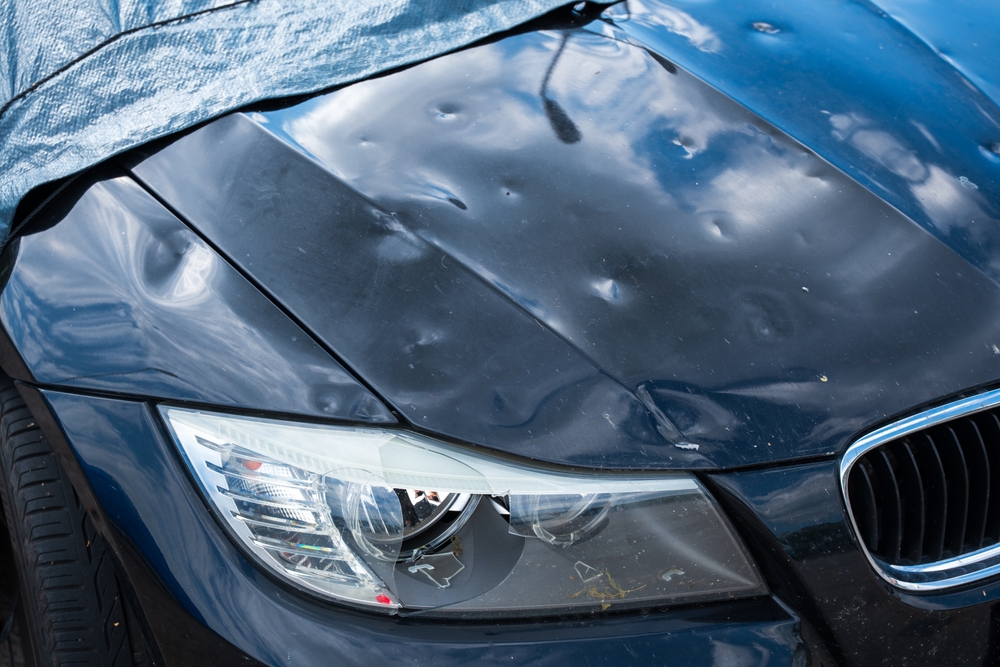
Accidents happen, no matter how careful you are. That’s why you use your seatbelt, have airbags, and carry a good auto insurance policy.
That last point is especially important if you’re in the market for a new car. After all, the average cost of a new car in America today is over $47,000. The last thing you’d want to do is get in a collision without proper coverage. Or find that, even with an excellent auto policy, you still owe your finance company thousands of dollars even after your claim is fully paid.
It could happen whether you’re driving safely in Atlanta or traversing a lazy rural road in southern Georgia. That’s why there’s such a thing as gap insurance. Read on and get answers to such critical questions as:
- What is gap insurance?
- How does gap insurance work?
- Do I need gap insurance?
Gap Insurance: Another Protective Measure for Your Vehicle
This form of coverage stands for “guaranteed asset protection.” Gap insurance covers the difference between what you pay for a new car and what your insurer says the vehicle is worth if you get into a serious accident within the first year or two of ownership.
The problem is that you paid sticker price or made your best deal for that new car or late-model pricey used car or truck. But that’s not what the insurer calls the vehicle’s actual cash value, or ACV. They’ll pay off the ACV, and you must pay the difference between that amount and what you still owe your lender.
Uh oh.
Bridging the Value Divide
You no longer have the car you recently purchased because it was totaled in an accident. But you’re still making car payments, thanks to an economic reality known as deprecation.
Understanding Depreciation: How It Affects Your Car’s Value
Consider your home if you own one. It’s almost guaranteed that it will appreciate in value over time. That means it will become worth more — maybe much more — than what you bought it for in just a few short years. Some art, jewelry, antiques, and other possessions work the same way.
Car values move in the exact opposite direction. Your new ride quickly depreciates. It loses a big chunk of its value just about as soon as you coast out of the dealership. In fact, the most value lost is in the new car’s first year or two.
Here’s how that affects you.
A Specific Scenario Where Gap Insurance Is a Must
Let’s say you’ve just purchased a shiny new $40,000 SUV, and you’re driving it out of the Augusta new-car dealership. There’s sun in your eyes, so you don’t see the car coming your way.
You’re T-boned, but you’re not seriously hurt, and neither is anyone in the other vehicle.
Unfortunately, your brand-new car is totaled. That means your insurer has determined that it’s more cost-effective for them to declare the vehicle a total loss rather than trying to repair it. So they cut a check and send it to your lender.
Here’s the rub. When it comes to what type of damage should be covered under your insurance in Georgia, the amount your insurer pays your finance company is the ACV. Remember “actual cash value?” That’s what your “newish” (but no longer technically new) car is worth due to depreciation.
Your insurer determines that what is technically a used car is now only worth $32,000 — not the $40,000 you borrowed to pay for it. So they pay your lender the lesser amount and close the case.
Your lender then reminds you that you still owe them the $8,000 difference.
You’re outraged. You have auto coverage. So why are you still paying for a car that’s now in an auto graveyard?
Collision and Comprehensive Insurance vs. Gap Insurance
You’ve got a good auto insurance plan that covers damages with collision and comprehensive coverage. But what does that really mean?
Collision coverage is the element of your policy that covers, well, collisions. A key reason you need collision insurance in Georgia is that it will cover an accident that’s your fault up to your deductible and vehicle’s ACV. The deductible is the dollar amount you agree to pay before your insurer pays the rest.
Comprehensive coverage in Georgia is a great choice to protect against the many other ways your car can be lost, damaged, or destroyed. That includes theft, vandalism, collision with wildlife, fire, damage in a weather event, and other mishaps and calamities.
If your policy includes collision and comprehensive coverage, it’s a smart move that will protect your finances. So why do you need gap insurance?
It’s an entirely different form of financial protection than collision and comprehensive. Take a closer look.

Who Really Needs Gap Insurance?
You don’t … unless you’re planning to buy a new or expensive used car or truck.
While that vehicle is still a year or two old, you might get less for it if it’s totaled than what you still owe your lender due to depreciation, as previously explained. Gap insurance pays the difference.
In the scenario of the car totaled coming out of the dealership lot, you’d owe nothing more to the finance company if you have gap coverage. Now, you can start over and buy another vehicle without worrying about trying to carry two car loans. It could be something to consider, too, even if you plan to follow the best safety tips for drivers in Georgia.
Weighing the Pros and Cons: Should You Invest in Gap Insurance?
Keep in mind that this coverage is only important when you owe more for your car than your insurer would pay if it became a total loss or the repair bills were extremely high. Once you whittle that car loan down a bit, it no longer makes sense to carry this on your policy.
When will you reach that point? That’s something your auto coverage agent will be able to help you determine. Run the numbers and see how long you might need such coverage. Then, drop it when your payments catch up with your car’s actual cash value. Usually, that will take no longer than a year or two of ownership.
Yes, it’s an added cost, but it’s very affordable. You might pay just a few extra dollars a month to add this protective measure to your policy.
Ready to Move Forward With Gap Insurance?
Call us before you purchase your next new or higher-priced used vehicle. Your knowledgeable Southern Harvest Insurance agent will crunch the numbers to see whether it’s in your best interest to add this coverage to your policy. As an independent agent, they can go shopping for the most affordable coverage — probably only a few extra dollars a month and for a limited time.
Call us at (877) 831-4677 or get a quick quote online. You can also find a nearby Southern Harvest Insurance office wherever you live in the Peach State.
Frequently Asked Questions About Gap Insurance
Here are answers to some of the most common questions you might have about this form of coverage.
Can Gap Insurance Be Purchased After Buying a Vehicle?
Usually, as long as you still have an active loan. But it only makes sense when you owe more than the car’s actual cash value. That usually happens when the vehicle is relatively new. Once you’ve made several monthly payments, it might no longer make sense to keep making gap payments.
Does Gap Insurance Provide Coverage for Vehicle Theft?
Yes, if you don’t get the car back, or it comes back in such poor condition that it must be totaled, or the repairs cost more than your car’s actual cash value.
Can Gap Insurance Be Transferred If I Sell My Vehicle?
No. The policy is no longer in effect if you no longer own the vehicle. Of course, the new owners can get such coverage for themselves if the same conditions apply — they owe their lenders more than the vehicle’s actual cash value.
What Factors Affect the Cost of Gap Insurance?
Many of the same factors that determine what you pay for your auto coverage also affect the cost of gap insurance. That includes your driving record and likelihood of having an at-fault accident. Also, the cost of the car and its predicted rate of depreciation.